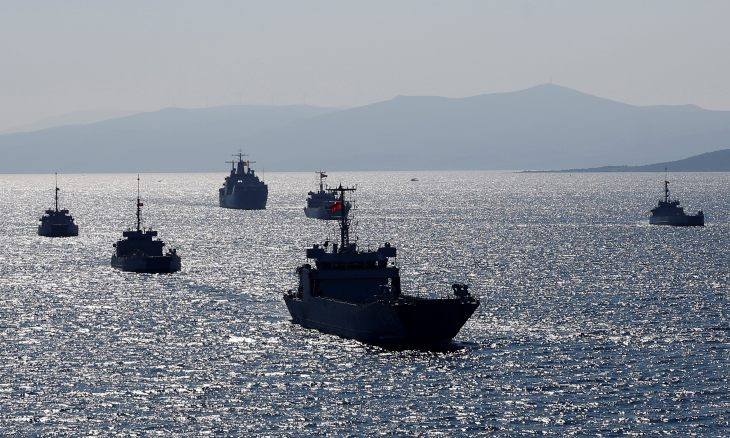Turkish drill ship heads back to Turkey from off Cyprus
Turkish vessel Yavuz left the area where it was operating southwest of Cyprus and reached Turkey's coast, Refinitiv Eikon shipping data showed on Oct. 5. Welcoming the news, a spokesman for the EU executive, the European Commission, said: "The departure constitutes another welcome step towards de-escalation in the eastern Mediterranean and we hope for similar and further moves in this direction."
Duvar English - Reuters
A Turkish drill ship has left the area where it was operating southwest of Cyprus and reached Turkey's coast, Refinitiv Eikon shipping data showed on Oct. 5, in a move the European Union said would help to ease tensions in the east Mediterranean.
EU member Cyprus' internationally recognized Greek Cypriot government has long been at odds with Turkey over the demarcation of maritime waters and other issues. Turkish vessels began drilling for oil and gas near Cyprus last year.
EU leaders on Oct. 2 assured Greek Cyprus that the bloc would punish Turkey if it continues drilling in disputed Mediterranean areas, after resisting Cypriot calls to impose sanctions on Ankara.
The vessel Yavuz began operations off the southwest of Cyprus which were then extended until Oct. 12, in a move described by Greece, a close ally of Cyprus, as provocative. Yavuz had first begun operations east of Cyprus in July 2019.
However, ship tracking data showed Yavuz as being near the port of Taşucu in Turkey's Mersin province on early on Oct. 5, after it departed on Oct. 4 from the area southwest of Cyprus.
 Turkey, Greek Cyprus lobby for EU support ahead of summit
Turkey, Greek Cyprus lobby for EU support ahead of summitWelcoming the news, a spokesman for the EU executive, the European Commission, said: "The departure constitutes another welcome step towards de-escalation in the eastern Mediterranean and we hope for similar and further moves in this direction."
"It’s an important signal," he told a regular briefing.
Turkish seismic research vessel Barbaros Hayrettin Paşa remains off southeastern Cyprus and its operations there have been extended to Oct. 18.
Regional tensions simmered after Turkish and Greek frigates collided at sea in August near a Turkish exploration vessel, but calmed down after Turkey and Greece agreed to resume "exploratory talks" that ended in 2016.
NATO announced on Oct. 1 that Greece and Turkey, both alliance members, had set up a "military de-confliction mechanism" to avoid accidental clashes at sea.
 Nothing can justify Turkey's intimidation of Greece and Cyprus: EU chief
Nothing can justify Turkey's intimidation of Greece and Cyprus: EU chiefThe island of Cyprus was split after a 1974 Turkish invasion spurred by a brief coup engineered by the military then ruling Greece.
Turkey has no diplomatic relations with Cyprus and instead recognises a breakaway Turkish Cypriot state in the north of the island.
